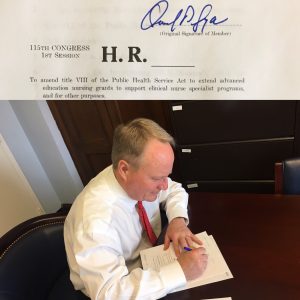Earlier this week, we recapped the flurry of confirmation activity we expected during the week of February 6th-10th. Congress barnstormed through a series of contentious confirmation votes.
On Tuesday, the Secretary of Education nominee, Betsy DeVos, was confirmed by a slim 51-50 vote in the Senate with Vice President Pence casting the tie breaking vote. The following day, Senator Sessions was confirmed almost entirely along party lines with a 52-47 vote to have him lead the Justice Department as Attorney General. In a procedural move, Senate Majority Leader Mitch McConnell prevented Sen. Elizabeth Warren (D-MA) from reading a letter opposing Sessions’ nomination for a federal judgeship written by civil rights icon Coretta Scott King to the U.S. Senate back in 1986; McConnell invoked Rule 19 of the Senate Rules. The rule, which states that ‘No senator in debate shall, directly or indirectly, by any form of words impute to another Senator,’ is rarely invoked and thus drew widespread criticism. Unsurprisingly, the procedural silencing only drew wider attention to the now famous letter.
On Wednesday, the President’s nominee for the Supreme Court, Neil Gorsuch, told Senator Richard Blumenthal (D-CT) that he found the President’s comments on the judiciary both “demoralizing” and “disheartening.” Senate Democrats, however, continue to cast doubt over Gorsuch’s ability to be an independent judicial check on the President’s authority.
Congressman Tom Price (R-GA), on Friday, was confirmed by a vote of 52-47 to become Secretary of Health and Human Services. Following extensive debates over ethics and Price’s investments in healthcare companies he had jurisdiction over as a member of Congress, Republicans called the early morning roll-call vote at about 2:00 AM. He was sworn in later that morning by Vice President Mike Pence.
Lastly, the ninth circuit federal court of appeals unanimously ruled to uphold a lower court’s ruling blocking President Trump’s travel ban from seven majority-Muslim countries. The lawsuit was filed by the Washington state Attorney General, and is a significant setback for a Presidency that’s only three weeks old.

